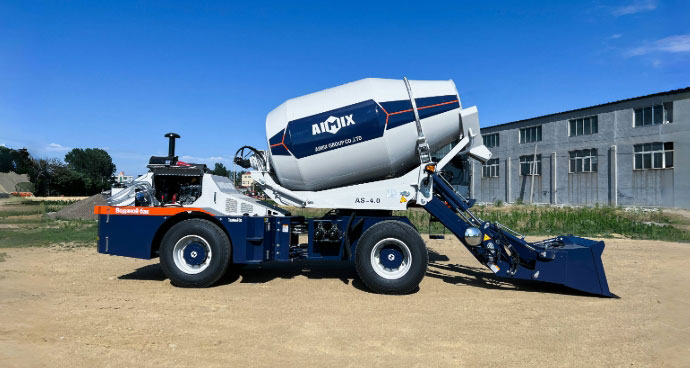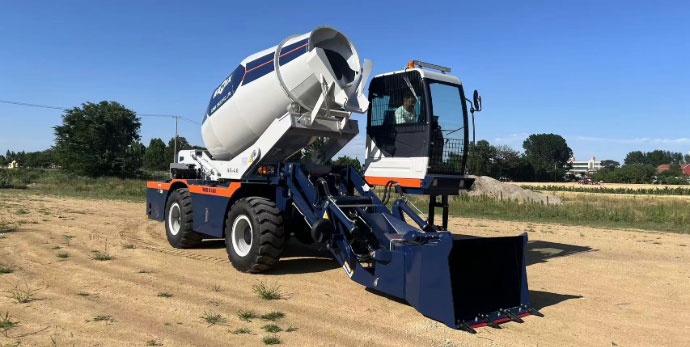When it comes to choosing a concrete mixer for construction projects, two prominent options are often considered: self loading mixer truck and traditional concrete mixer. These machines play crucial roles in ensuring the seamless and efficient delivery of concrete on-site. However, the question remains: which one offers better value for your investment? In this article, we will delve into a comprehensive price and performance comparison between the two, evaluating the key factors that can influence decision-making for construction professionals.
Self-loading concrete mixer trucks are a revolution in the world of concrete mixing and delivery. These machines are engineered with advanced technology that allows them to handle both mixing and transportation of concrete with minimal external intervention. The distinctive feature of these trucks is their built-in loading and mixing mechanisms, which allow them to operate autonomously without the need for external loading equipment.

The cost of self-loading concrete mixer trucks varies based on several factors, including capacity, brand, and additional features. Typically, these machines are priced higher than traditional mixers due to their multifunctional capabilities. However, the **initial cost** should be weighed against the long-term savings that can be realized through enhanced efficiency and reduced labor requirements.
Investing in a self-loading concrete mixer often translates into fewer overhead costs, as these machines do not require external labor for loading and unloading materials. Additionally, the ability to transport concrete directly to the site without relying on additional vehicles may reduce logistical expenses. However, the initial upfront cost remains a significant factor for many small-scale contractors.
In terms of performance, self-loading concrete mixer trucks outshine traditional mixers in various aspects. These self loading concrete mixers for sale in Indonesia are engineered for maximum efficiency, offering faster loading and mixing cycles. The operator can manage the loading process directly from the truck’s controls, which ensures minimal downtime and optimal productivity. Moreover, the built-in hydraulic system makes it easier to handle heavy loads, ensuring smoother operations.
Another major advantage is the versatility of self-loading mixers. These trucks can operate in areas where traditional mixers may struggle due to accessibility constraints. Their ability to operate autonomously also reduces the dependency on other machinery, making them ideal for remote or smaller-scale construction projects.

Traditional concrete mixers, also known as drum mixers, are typically mounted on trucks or trailers and are used for mixing concrete for delivery. These machines have been a staple in construction for decades and are well-understood in terms of their functionality. They operate by rotating a drum, which ensures the proper mixing of cement, aggregates, and water before transportation to the job site.
Traditional concrete mixers are generally more affordable compared to self-loading concrete mixer trucks. The simplicity of their design, which lacks the built-in loading and mixing capabilities of self-loading trucks, contributes to their lower price point. Contractors on a tighter budget often prefer these mixers for their cost-effectiveness, especially on projects where fewer labor-saving features are required.
However, the lower upfront cost is counterbalanced by the need for additional equipment or labor for loading concrete into the drum. These costs can accumulate over time, especially on larger projects where large quantities of concrete need to be mixed and transported.
While traditional concrete mixers are effective at their core function, they are less efficient in terms of time and labor compared to self-loading concrete mixer trucks. The main limitation lies in the fact that they require separate machines for loading and mixing, which often leads to higher operational costs and longer project timelines. The reliance on additional machinery also increases the risk of delays due to potential equipment breakdowns or availability issues.
Furthermore, traditional mixers are often less maneuverable in confined spaces, making them less suitable for construction sites with challenging access points. While they remain reliable workhorses for many large-scale projects, their overall performance in terms of versatility and speed lags behind that of self loading concrete mixer for sale in Ghana.
Ultimately, the decision between a self-loading concrete mixer truck and a traditional mixer boils down to specific project requirements, budget, and operational needs. For small to medium-sized construction projects that demand flexibility, speed, and reduced labor costs, a self-loading concrete mixer offers significant advantages. Its autonomous operation, combined with enhanced efficiency, makes it an appealing option for contractors looking to streamline their operations.
On the other hand, for larger projects with high-volume concrete requirements, traditional mixers may still be the go-to choice due to their proven reliability and affordability. The decision comes down to the particularities of each project and the balance between initial investment and long-term savings.